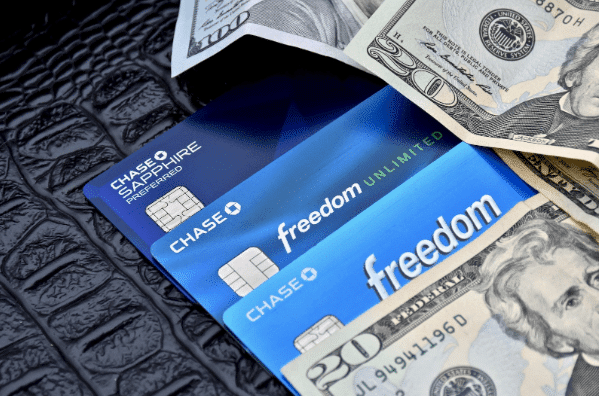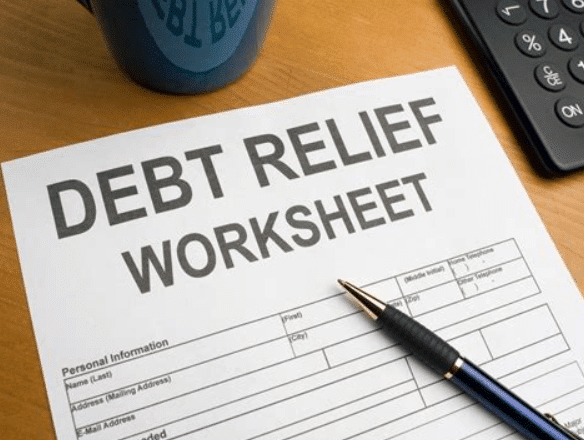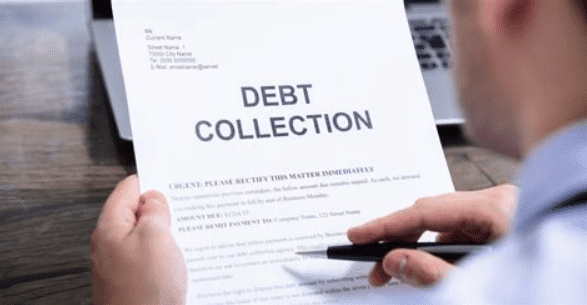Responding to a lawsuit from Synchrony Bank regarding the PayPal Extra Mastercard requires a strategic approach. Understanding the essential elements of the case and asserting recognized affirmative defenses can strengthen your position in court.
If Synchrony Bank fails to prove the essential elements of its case, such as demonstrating that you owe the debt or that they have legal standing to sue, you may be entitled to a dismissal. However, if the bank successfully establishes these elements, you will have the opportunity to present your defense.
Asserting recognized affirmative defenses is crucial in defending against the lawsuit. These defenses provide legally recognized reasons for the judge to dismiss the case. Examples of affirmative defenses may include the expiration of the statute of limitations, lack of proper documentation, or errors in the creditor’s procedures.
By utilizing ZumaZip.com, you can efficiently respond to the lawsuit and assert your defenses within the allotted time frame. Taking proactive steps to address the lawsuit and present a strong defense can help protect your rights and potentially lead to a favorable outcome in court.
What the Credit Card Companies Must Prove
In a debt collection case brought by a credit card company, such as a breach of contract lawsuit, the plaintiff must establish several key elements to prove their case. One crucial element is demonstrating the existence of a valid contract between you and the credit card company.
To defend against the lawsuit, you can challenge the plaintiff’s claim by scrutinizing the contract’s validity. This involves examining whether a legally binding agreement existed between you and the credit card company. Factors to consider may include whether you applied for and received a credit card, agreed to the terms and conditions outlined in the cardholder agreement, and used the card to make purchases or obtain credit.
If there are any discrepancies or deficiencies in the evidence presented by the plaintiff regarding the contract’s existence or terms, you can raise objections and present counter arguments to refute their claims. By challenging the validity of the contract, you may undermine the plaintiff’s case and increase the likelihood of a favorable outcome for your defense.
The burden of proof lies with the credit card company to establish the validity of the contract, your breach of its terms, and the resulting harm or damages suffered. As the defendant, you have the right to challenge the evidence presented by the plaintiff and raise affirmative defenses to contest their claims.
When facing a lawsuit from a credit card company, it’s essential to thoroughly review the details of the case and assess your options for defense. This includes examining whether you indeed had a credit card with the company in question, verifying the accuracy of the charges or debt amount being disputed, and considering any affirmative defenses that may apply to your situation.
By critically evaluating the evidence and legal arguments presented by both parties, you can effectively navigate the litigation process and work towards achieving a favorable outcome in your case.
- Did I own a credit card from this company?
- Are these even my charges?
- Is the amount in the suit accurate?
In many cases, the credit card company will have evidence to prove its claim; however, you may have affirmative defenses that entitle you to a dismissal.
Affirmative Defenses Against SYNCB/PPEXTR
Affirmative defenses provide you with legal grounds to challenge the plaintiff’s claims and potentially secure a favorable outcome in the lawsuit. In the scenario you described, if you can demonstrate that you fulfilled your obligation by paying the balance owed to the credit card company, but they failed to properly credit your payment, it constitutes a breach of contract on their part, not yours.
In such cases, presenting evidence of your payment, such as bank statements or payment receipts, can strengthen your defense and undermine the plaintiff’s case. By highlighting the creditor’s failure to accurately account for your payment, you can argue that you should not be held liable for the alleged debt.
Successfully asserting affirmative defenses requires careful examination of the facts and relevant legal principles, as well as strategic presentation of evidence to support your arguments. By effectively challenging the plaintiff’s claims and asserting valid defenses, you can protect your rights and interests in the legal proceedings.
With ZumaZip.com you can make the right affirmative defenses the right way.
Typical affirmative defenses include the following:
Statute of Limitations
The statute of limitations is a critical aspect to consider when defending against a debt collection lawsuit. It sets the maximum period within which legal action can be taken to enforce a debt. Once this period has elapsed, the creditor or debt collector loses the right to sue you for the debt, and you can use the statute of limitations as an affirmative defense to have the case dismissed.
It’s essential to be aware of the statute of limitations specific to your state and the type of debt involved. If the creditor or debt collector files a lawsuit after the statute of limitations has expired, you have the right to raise this defense in court, and the case should be dismissed.
Additionally, as you mentioned, creditors must adhere to legal requirements when filing a lawsuit, which includes providing the necessary documentation to support their allegations. If the plaintiff fails to attach the contract or other required paperwork to the lawsuit, it can weaken their case and provide grounds for dismissal.
Understanding and effectively utilizing these legal principles can significantly strengthen your defense strategy in a debt collection lawsuit.
Plaintiff Failed to Comply with Court Regulations
The company will hold you to all rules, so do the same to them.
Sued for Unauthorized Charges
If you never authorized the charges, you are not responsible for the for them. Period. The only exception is if you are a co-signer on someone else’s account and that person made the charges.
Sued for Fees not Included in the Contract
Late fees, over limit fees, collection charges, attorney fees, court cost and all other fees must be included explicitly in the contract.
Sued for Fees That Violate Statutory Laws
Many states limit or bar certain fees. If you have been charged a fee that is unlawful, it must be dismissed, regardless of what the contract reads.
Charged an Interest Rate That Violates the Law
Many jurisdictions place a ceiling on interest rates. You have an affirmative defense if you have been overcharged according to the law.
Always Respond to a Lawsuit from SYNCB/PPEXTR
Ignoring a lawsuit can have serious consequences, but it’s a common misconception that responding is only necessary if you can afford to pay the debt. In fact, responding is crucial, especially if you’re facing financial difficulties, as it prevents the plaintiff from obtaining a default judgment.
A default judgment occurs when the defendant fails to respond, leading the court to rule in favor of the plaintiff and potentially awarding them a much larger sum than the original debt. By responding to the lawsuit, you have the opportunity to present your case and potentially avoid such unfavorable outcomes.
ZumaZip.com makes it simple to respond the right way.
A default judgment can have serious implications, including the creditor’s ability to garnish wages or levy bank accounts, especially if you’re facing financial constraints.
Upon receiving the lawsuit, it’s crucial to file an answer promptly. Your answer should challenge the creditor to prove the debt and assert any affirmative defenses you may have. If the creditor can substantiate the debt, it may be prudent to explore settlement options outside of court. Often, creditors are willing to negotiate and may agree to waive fees, interest, penalties, and even reduce the original debt amount.
Given that SYNCB/PPEXTR is the original creditor, they are more likely to possess the necessary paperwork to support their claim. Therefore, focusing on affirmative defenses and engaging in negotiation for a reduced settlement could yield favorable results. Responding to the lawsuit and asserting your rights gives you the leverage needed to reach a mutually beneficial settlement agreement.
What is ZumaZip?
ZumaZip is a convenient solution designed to streamline your response to a debt collection lawsuit. Here’s a breakdown of what you can expect when you use ZumaZip:
Firstly, you’ll access our user-friendly web application, which guides you through the process step by step. You’ll be prompted to answer a series of questions related to your specific situation. Once you’ve completed the questionnaire, you have the option to either print out the finalized forms and mail them to the appropriate courts yourself, or you can opt to utilize ZumaZip’s services to file them on your behalf. Additionally, if you choose this option, an attorney will review your document for added peace of mind.
If you’re seeking guidance on how to effectively respond to a debt collection lawsuit, ZumaZip can provide the assistance you need. Feel free to explore our FAQs for more information on what ZumaZip has to offer.
What if I haven’t been sued yet?
If you’ve only received a collections notice, but not a lawsuit, the best way to respond is with a Debt Validation Letter. When a debt collector contacts you in any way, whether it’s by phone or mail, you can respond by formally requesting a debt validation with a Debt Validation Letter . This letter notifies the collector that you dispute the debt and forces them to provide proof you owe the debt. They can’t call you or continue collecting until they provide validation of the debt. This flowchart shows how you can use a Debt Validation Letter to win.
Get started with a Debt Validation Letter here.
How to Answer a Summons for debt collection in all 50 states
Here’s a list of guides on how to respond to a debt collection lawsuit in each state:
- Alabama
- Alaska
- Arizona
- Arkansas
- California
- Colorado
- Connecticut
- Delaware
- Florida
- Georgia
- Hawaii
- Idaho
- Illinois
- Indiana
- Iowa
- Kansas
- Kentucky
- Louisiana
- Maine
- Maryland
- Massachusetts
- Michigan
- Minnesota
- Mississippi
- Missouri
- Montana
- Nebraska
- Nevada
- New Hampshire
- New Jersey
- New Mexico
- New York
- North Carolina
- North Dakota
- Ohio
- Oklahoma
- Oregon
- Pennsylvania
- Rhode Island
- South Carolina
- South Dakota
- Tennessee
- Texas
- Utah
- Vermont; Vermont (Small Claims court)
- Virginia
- Washington
- West Virginia
- Wisconsin
- Wyoming
Guides on how to beat every debt collector
Hey there! Facing off against a debt collector can feel like a daunting challenge, but fear not! We’re here to help you navigate through it all with our handy guides designed to assist you in beating every debt collector you encounter. Whether you’re facing a new lawsuit or dealing with a persistent collector, we’ve got your back. Stay positive, stay informed, and let’s tackle this together!
- Absolute Resolutions Investments LLC
- Accredited Collection Services
- Alliance One
- Amcol Clmbia
- American Recovery Service
- Asset Acceptance LLC
- Asset Recovery Solutions
- Associated Credit Services
- Autovest LLC
- Cach LLC
- Cavalry SPV I LLC
- Cerastes LLC
- Colinfobur
- Covington Credit
- Crown Asset Management
- CTC Debt Collector
- Cypress Financial Recoveries
- Delanor Kemper & Associates
- Eagle Loan of Ohio
- Educap
- Estate Information Services
- FIA Card Services
- Forster & Garbus
- Freshview Solutions
- Fulton Friedman & Gullace LLP
- Harvest Credit Management
- Howard Lee Schiff
- Hudson & Keyse LLC
- Integras Capital Recovery LLC
- Javitch Block
- Jefferson Capital Systems LLC
- LVNV Funding
- Mannbracken
- Mariner Finance
- Medicredit
- Michael J Adams PC
- Michael J Scott
- Midland Funding LLC
- Mullooly, Jeffrey, Rooney & Flynn
- Mountain Land Collections
- MRS Associates
- National Collegiate Trust
- Nationstar Foreclosure
- Northstar Capital Acquisition
- NCEP LLC
- NRC Collection Agency
- OneMain Financial
- Palisades Collection LLC
- Pallida LLC
- Paragon Revenue Group
- Pinnacle Collections Agency
- PMAB LLC
- Portfolio Recovery Associates
- Provest Law
- PYOD LLC
- Reunion Student Loan Finance Corporation
- Revenue Group
- Regents and Associates
- RSIEH
- Salander Enterprises LLC
- Second Round Sub LLC
- Security Credit Services
- Sherman Financial Group
- Suttell and Hammer
- T-Mobile
- Transworld Systems
- Tulsa Teachers Credit Union
- UCB Collection
- Velo Law Office
- Velocity Investments
- Waypoint Resource Group
- Weinberg and Associates
- Wolpoff & Abramson
Settle your medical debt
Having a health challenge is stressful, but dealing medical debt on top of it is overwhelming. Here are some resources on how to manage medical debt.
- Am I Responsible for My Spouse’s Medical Debt?
- Do I Need a Lawyer for Medical Bills?
- Do I Need a Lawyer to Fight Medical Bill Debt?
- Does Bankruptcy Clear Medical Debt?
- How Much Do Collection Agencies Pay for Medical Debt?
- How to Find Medical Debt Forgiveness Programs
- Is There a Statute of Limitations on Medical Bills?
- Medical Debt Statute of Limitations by State
- Summoned to Court for Medical Bills — What Do I Do?
- Summoned to Court for Medical Bills? What to Do Next
Stop calls from Debt Collectors
Do you keep getting calls from an unknown number, only to realize that it’s a debt collector on the other line? If you’ve been called by any of the following numbers, chances are you have collectors coming after you, and we’ll tell you how to stop them.
- 800-390-7584
- 800-289-8004
- 800-955-6600
- 877-366-0169
- 877-591-0747
- 800-278-2420
- 800-604-0064
- 800-846-6406
- 877-317-0948
- 888-899-4332
- 888-912-7925
- 202-367-9070
- 502-267-7522
Other wage garnishment resources
- Bank Account Garnishment and Liens in Texas
- Can I Stop Wage Garnishment?
- Can My Wife’s Bank Account Be Garnished for My Debt?
- Can Payday Loans Garnish Your Wages?
- Can pensions be garnished?
- Can Private Disability Payments Be Garnished?
- Can Social Security Disability Be Garnished?
- Can They Garnish Your Wages for Credit Card Debt?
- Can You Stop a Garnishment Once It Starts?
- Guide to Garnishment Limits by State
- How Can I Stop Wage Garnishments Immediately?
- How Long Before a Creditor Can Garnish Wages?
- How Long Does It Take to Get Garnished Wages Back?
- How to Fight a Wage Garnishment
- How to Prevent Wage Garnishment
- How to Stop a Garnishment
- How to Stop Social Security Wage Garnishment
- How to Stop Wage Garnishment — Everything You Need to Know
- New York Garnishment Laws – Overview
- Ohio Garnishment Laws — What They Say
- Wage Garnishment Lawyer
- What Is Wage Garnishment?
Guides on Arbitration
If the thought of going to court stresses you out, you’re not alone. Many Americans who are sued for credit card debt utilize a Motion to Compel Arbitration to push their case out of court and into arbitration.
Below are some resources on how to use an arbitration clause to your advantage and win a debt lawsuit.
- How Arbitration Works
- How to Find an Arbitration Clause in Your Credit Agreement
- How to Make a Motion to Compel Arbitration
- How to Make a Motion to Compel Arbitration in Florida
- How to Make a Motion to Compel Arbitration Without an Attorney
- How Credit Card Arbitration Works
- Motion to Compel Arbitration in California
- Sample Motion to Compel Arbitration
Federal Debt Collection Laws Can Protect You
Knowing your rights makes it easier to stand up for your rights. Below, we’ve compiled all our articles on federal debt collection laws that protect you from unfair practices.
- 15 USC 1692 Explained
- Does the Fair Credit Reporting Act Work in Florida?
- FDCPA Violations List
- How to File an FDCPA Complaint Against Your Debt Collector (Ultimate Guide)
- How to Make a Fair Debt Collection Practices Act Demand Letter
- How to Submit a Transunion Dispute
- How to Submit an Equifax Dispute
- How to Submit an Experian Dispute
- What Debt Collectors Cannot Do — FDCPA Explained
- What Does Account Information Disputed by Consumer Meets FCRA Requirements Mean?
- What does “meets FCRA requirements” mean?
- What does FCRA stand for?
- What is the Consumer Credit Protection Act
Resolve Your Debt with Your Creditor
Some creditors, banks, and lenders have an internal collections department. If they come after you for a debt, ZumaZip can still help you respond and resolve the debt. Here’s a list of guides on how to resolve debt with different creditors.
- American Express; American Express – Debt Collection
- Bank of America
- Barclay
- Best Buy Credit Card
- Capital One
- Chase
- Credit One Bank
- Old Navy Credit Card
- PayPal Synchrony Card
- Regional Finance
- Retailers National Bank
- Reunion Student Loan Finance Corporation
- SYNCB/PPEXTR
- Synchrony Bank
- Synchrony Walmart Card
- Target National Bank
- Webbank
- Wells Fargo
- Can I Pay My Original Creditor Instead of a Debt Collection Agency?
- Can I Settle a Debt with the Original Creditor?
Check the Status of Your Court Case
Don’t have time to go to your local courthouse to check the status of your case? We’ve created a guide on how to check the status of your case in every state, complete with online search tools and court directories.
- Alabama Court Case Search—Find Your Lawsuit
- Alaska Court Case Search — Find Your Lawsuit
- Arizona Court Case Search – Find Your Lawsuit
- Arkansas Court Case Search — Find Your Lawsuit
- California Court Case Search- Find Your Lawsuit
- Colorado Court Case Search — Find Your Lawsuit
- Connecticut Case Lookup — Find Your Court Case
- Delaware Court Case Search — Find Your Lawsuit
- Florida Court Case Search — Find Your Lawsuit
- Georgia Court Case Search — Find Your Lawsuit
- Hawaii Court Case Search — Find Your Lawsuit
- Idaho Court Case Search – Find Your Lawsuit
- Illinois Court Case Search — Find Your Lawsuit
- Indiana Court Case Search — Find Your Lawsuit
- Iowa Court Case Search — Find Your Lawsuit
- Kansas Court Case Search — Find Your Lawsuit
- Kentucky Court Case Search — Find Your Lawsuit
- Louisiana Court Case Search — Find Your Lawsuit
- Maine Court Case Search — Find Your Lawsuit
- Maryland Court Case Search — Find Your Lawsuit
- Massachusetts Court Case Search — Find Your Lawsuit
- Michigan Court Case Search — Find Your Lawsuit
- Minnesota Court Case Search — Find Your Lawsuit
- Mississippi Court Case Search — Find Your Lawsuit
- Missouri Court Case Search — Find Your Lawsuit
- Montana Court Case Search — Find Your Lawsuit
- Nebraska Court Case Search — Find Your Lawsuit
- Nevada Court Case Search — Find Your Lawsuit
- New Hampshire Court Case Search — Find Your Lawsuit
- New Jersey Court Case Search—Find Your Lawsuit
- New Mexico Court Case Search – Find Your Lawsuit
- New York Case Search — Find Your Lawsuit
- North Carolina Court Case Search — Find Your Lawsuit
- North Dakota Court Case Search — Find Your Lawsuit
- Ohio Court Case Search — Find Your Lawsuit
- Oklahoma Court Case Search — Find Your Lawsuit
- Oregon Court Case Search — Find Your Lawsuit
- Pennsylvania Court Case Search — Find Your Lawsuit
- Rhode Island Court Case Search — Find Your Lawsuit
- South Carolina Court Case Search — Find Your Lawsuit
- South Dakota Court Case Search — Find Your Lawsuit
- Tennessee Court Case Search — Find Your Lawsuit
- Texas Court Case Search — Find Your Lawsuit
- Utah Court Case Search — Find Your Lawsuit
- Vermont Court Case Search — Find Your Lawsuit
- Virginia Court Case Search — Find Your Lawsuit
- Washington Court Case Search — Find Your Lawsuit
- West Virginia Court Case Search — Find Your Lawsuit
- Wisconsin Court Case Search — Find Your Lawsuit
- Wyoming Court Case Search — Find Your Lawsuit



































